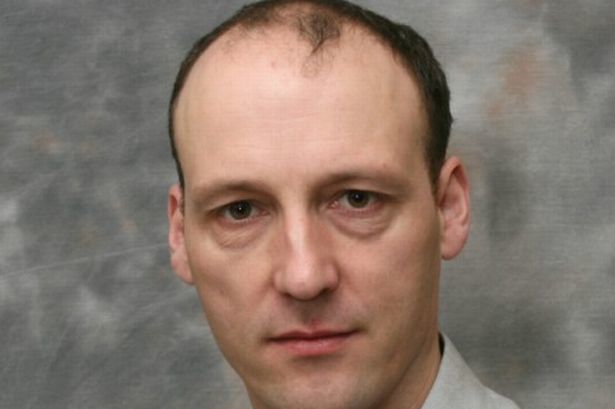As online exhortations go, the demand to “check your privilege” is a strange beast.
It is most often used to stop people commenting on matters of which they have no direct first-hand experience but is perhaps better seen as a rejoinder that our opinions are inevitably subjective and, therefore, limited.
Almost inevitably, this brings us to the curious case of Dr Stuart Waiton, the Abertay University lecturer and Brexit Party candidate for Dundee West who strolled blithely into a storm of controversy over his comments about racism in football.
His argument is that the publicity given to racist chanting during England’s international match in Bulgaria had nudged the dial on racism and that players are becoming increasingly sensitive to racist abuse, which resulted in players walking off during a match in England last weekend.
This, he said, means more dangerous activities, such as missile throwing during matches are ignored.
Given Dr Waiton is a white man of a certain age, it would perhaps have been wise for him to check his privilege before opening his mouth on how black players should respond to racist taunts.
Clearly, he subscribes to the theory that sticks and stones will break your bones but names will never hurt you, forgetting this is something said to children to help them get over the upset of being verbally abused, not a guide for life.
He might also ask himself why anyone should have to endure abuse, in any circumstance, for the colour of their skin.
Dr Waiton is not racist but his argument is poor: claiming the authorities will make sure those who shout racial epithets are suitably punished so there is no need for footballers themselves to take action.
He then doubled down, describing concern over Nazi salutes at football games as a “moral panic”.
Call me old fashioned if you will, but if expressions of Nazism don’t stir a little moral panic in your breast then you’ve not been paying attention.
Back in the late 1980s, post-hardcore punks Fugazi released a cheerful little ditty about sexual harassment called Suggestion.
The song was written from the point of view of a woman subjected to verbal and physical harassment.
Given the band’s audience was mostly male, the line “why must I suffer your interpretation of what it is to be a man” was a direct challenge to listeners; that they have a choice over how they behave towards women.
In the music press of the day, the band were largely written off as worthy bores, too “right on” to be taken seriously.
Time, and the emergence of the Me Too movement, has proven the critics wrong and that line about interpretations of manhood is, sadly, more pertinent than ever and not just in terms of misogyny and sexual harassment.
If Dr Waiton’s interpretation of being a football supporter is one that includes the right to hurl abuse at black or other minority players, to make football grounds the sort of places people of colour cannot take their children, then someone should gently point out other, better interpretations of being a football fan are available.
And if people really believe hurling racial abuse is exercising freedom of speech, then they should be big enough to accept that people have the right to be offended.
Saying victims should be able to shrug off the abuse from 90-minute racists may not be racism itself, but it is wrong.
Drug money
Professor Ian Shanks, who lives outside Dundee, might just have shaken the pharmaceutical industry to its core this week.
The 71-year-old won his 13-year battle against Unilever for compensation he said he was due for inventing a new means of testing blood glucose.
His battle reached the Supreme Court after earlier rulings said the estimated £24 million earned by Unilever from his invention was not a significant amount compared to the billions the company rakes in elsewhere.
Now other scientists whose inventions have earned big pharma astronomical sums of money could be in line for similar payouts. And quite right too.
A galaxy far, far away
The Emperor is back!
Carnoustie’s own Ian McDiarmid will be donning his manky bathrobe for the next Star Wars film, Rise Of The Skywalker, which will come out this Christmas.
Those of you who had feared that his death at the hands of – spoiler alert – Darth Vader in 1983’s Return Of The Jedi would preclude him from another appearance need not have worried.
After all, if Carrie Fisher’s actual death doesn’t stop her from putting in a cameo there’s no reason that being tossed down a ventilation shaft in the Death Star should do so either.










